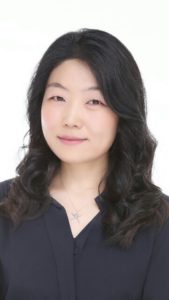
Multilingual Data & Knowledge
ASIALEX 2023, Seoul
Kilim Nam and Yelee An
The 16th International Conference of the Asian Association for Lexicography (ASIALEX) will be organized by the Korean Association for Lexicography (Korealex) and held on June 22-24, 2023, at Yonsei University in Seoul, South Korea. Founded in 2003, Korealex organizes two conferences a year and publishes the Journal of Korealex annually. Yonsei University was established in 1885 and today figures among the oldest and most prestigious Korean universities. It will be host to ASIALEX for the second time, 22 years after the second biennial conference held successfully in 2001 ASIALEX aims to promote scholarly and professional activities in the field of lexicography. Founded in 1997, it strives to deepen lexicographic research activities and broaden networks among lexicographers and other stakeholders all over the world, by organizing events and publishing the peer- reviewed journal, Lexicography. Journal of Asialex.
The theme of ASIALEX 2023 is Lexicography, Artificial Intelligence, and Dictionary Users. While proposals on other topics related to the study and use of dictionaries are also welcome, ASIALEX 2023 aims to provide opportunities to discuss the changes and challenges that go beyond the realms of traditional lexicography and seek new directions and perspectives for lexicography and dictionaries to cope with social problems and changes. These issues will also be broached by the four keynote speakers, namely, Jonghwan Kim (Naver Corporation), Erin McKean (Wordnik.com), Michael Rundell (Lexical Computing), and Yukio Tono (Tokyo University of Foreign Studies), primarily in relation to innovative achievements in lexicography, AI integration, and dictionary user research.
Dictionaries, including their accompanying resources and tools, methodologies and technologies, platforms, and publication formats, have been continuously evolving according to changes in the trends and cultural contexts of the times. As lexicography undergoes periods of transition, researchers have questioned the future of dictionaries and dictionary makers (e.g. Grefenstette’s ‘The Future of Linguistics and Lexicographers: Will there be Lexicographers in the year 3000?’, as early as 1998; Esposito 2002; or the EURALEX 2010 roundtable discussion on the theme ‘Will there be people who make dictionaries in 2020?’, cf. Bae 2016). Now that we have passed 2020, fortunately, the activities of many associations and researchers in the field of lexicography remain strong and ongoing. Although commercial models based on profit structures of print dictionaries no longer exist, the demand for refined language resources and the power of language information seem to have become more pertinent. The questions we are faced with are thus related to what opportunities as well as crises dictionaries and lexicography face. With this in mind, we look forward to discussing the cultural roles of lexicography and lexicographers, the value of language information in the AI era, and dictionary users themselves as major topics. The following points detail our intention to propose the theme of Lexicography, Artificial Intelligence, and Dictionary Users for ASIALEX 2023.
Dictionaries in the Age of Artificial Intelligence
In the current era of AI, dictionaries exist not just for human beings, but also for machines, and this shift urges us to deepen the discussion of theoretical lexicography and to expand the scope of dictionaries more flexibly. While the word has long been considered the basic unit of dictionary entries, it is now necessary to consider how to better adopt typically unregistered categories, such as neologisms, non-standard forms, loanwords, hate speech, slang, and pragmatic or nonverbal information, which have often been neglected in traditional lexicography. As Sinclair et al. (2004) referred to an ideal dictionary as containing all semantic units, it is time to consider the useful extensions and forms of a dictionary containing all such semantic units used in everyday communication.
Implication and Significance for and of Dictionary Users
Not only have the boundaries of what is considered a dictionary expanded, but the definitions of dictionary users have extended as well. As the term ‘machine readable’ indicates, nowadays dictionary users include machines as well as humans. Nonetheless, even dictionaries designed for machines ultimately aim to represent human language and to serve human beings. For a dictionary to properly function as a medium connecting human intuition and machines, it is necessary to think about how to represent knowledge of the world more precisely.
Popularization of Lexicography and the Role of Professionals
Finally, we hope that this conference will lead to discussions on popularizing dictionaries and fostering subsequent generations of lexicographers. Dictionaries are found all around us, and they are used everywhere in our daily lives, although we may not be aware of their presence. Despite the achievements of lexicography throughout human history and the relatively recent corpus revolution (Rundell and Stock 1992, Rundell 2008, Hanks 2012), the study of dictionaries does not seem to be widely appreciated by the public. For the public in general, dictionaries are still difficult to use, and lexicography is an unknown area. Scholars and professionals in lexicography thus need to seek out the desired identity of dictionaries as required in modern times by approaching and interacting with the public. We hope that ASIALEX 2023 will present opportunities to diagnose modern social communication problems by gaining a better understanding of the public use of language, and listening to the needs of a new, modern era with a more flexible attitude toward the structures, forms, and boundaries of lexicography and dictionaries.
KEYNOTES
Jonghwan Kim
Leader, Global Dictionary Production Center, Naver Corporation
Development of User Participation at the Naver Dictionary: A case study of Open Dictionary PRO and Accentia
Erin McKean
Founder, Wordnik.com
Investigating the ROI of AI for Lexicography
Michael Rundell
Chief Lexicographic Officer, Lexical Computing
Automating the creation of dictionaries: Are we nearly there?
Yukio Tono
Professor in Corpus Linguistics, Tokyo University of Foreign Studies
Research into dictionary use in an era of e-lexicography
References
Bae, Y. 2016. The evolution and future of a dictionary. Journal of New Korean Language Life, 26.4, 43-64.
Esposito, J.J. 2002. Dictionaries, another Netscape? Kernerman Dictionary News, 10, 1-3.
Grefenstette, G. 1998. The future of linguistics and lexicographers: will there be lexicographers in the year 3000? In Proceedings of the 8th Euralex Congress, Liege, 25-41.
Hanks, P. 2012. The Corpus Revolution in Lexicography. International Journal of Lexicography, 25.4, 398-436.
Rundell, M., 2008. The corpus revolution revisited. English Today, 24.1, 23-27.
Rundell, M. and Stock, P. 1992. The corpus revolution. English Today, 8.4, 45-51.
Sinclair, J., Jones, S. and Daley, R. 2004. English Collocation Studies: The OSTI Report. London: Continuum.
GWLN-5 @ ASIALEX 2023
ASIALEX 2023 will host the fifth edition of Globalex Workshop on Lexicography and Neology (GWLN-5). The main theme of GWLN-5 is unregistered words, i.e., lexical items not registered in dictionaries, including – but not limited to – words and expressions found in speech corpora, social media, hate speech, poetry, etc., or simply non-standard words or newly coined terminology. In addition, other papers discussing any pertinent issue related to neologisms –including new words, new multiword units, new elements of word formation, and new meanings of any of these – in the context of lexicography and dictionaries are also welcome. Selected papers will be published as a special issue of Lexicography. Journal of Asialex (Issue 10.2, December 2023). The deadline for 1,000-word abstract submission is January 13, 2023.

Kilim Nam is a professor at the Department of Korean Language and Literature at Kyungpook National University. She has a PhD in Korean linguistics (on the copula ida structures in contemporary Korean, 2004) from Yonsei University and was Visiting Scholar at SOAS University of London and UCLA Center for Korean Studies. She is thevice-president of Asialex.
nki@knu.ac.kr

Yelee An is Associate Professor of Korean linguistics at the Academy of Korean Studies. She has a PhD in Korean linguistics from Yonsei University (2013), and was Visiting Fellow at Harvard Yenching Institute and Visiting Scholar at the University of Hawaii at Manoa. She is the convener of ASIALEX 2023.
anyelee@aks.ac.kr

